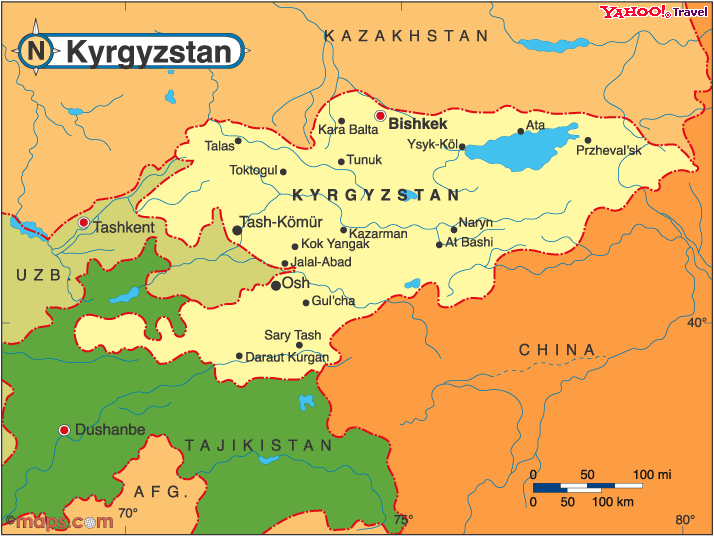 Day 1, Lamb 1.
Day 1, Lamb 1.Hospitality in
Probably the most obvious difference, and one which is well known to those who study or frequent the region, is attention to seating arrangement. Traditionally, a meal or tea is taken around a circular table, or gathered around food arranged on floor level. The guest of honor is always seated opposite the door so that the comings and goings of visitors and passing food will not disturb the guest. The guest/guests of honor are typically someone who has traveled from far away to be there, the eldest male or occasionally someone of particularly high esteem such as a doctor or mayor. Everyone is seated basically according to his or her age (which corresponds directly to esteem). If a woman is more elder than a man, then her seating takes precedent but ties go to the men. The host and, especially the hostess, seat themselves near the stove so that they can refill drinks and offer food.
During most of my time, I occupied the seat of honor or sat directly next to it. I was very touched and a little uncomfortable at the gesture as sometimes I was have a century younger than oldest guest and a good 10 to 15 years younger than a number of the other men. But despite the fact that my stay lasted far longer than a single meal or gathering, each time we ate a meal with others the hosts insisted on that seating arrangement.
Not every meal was formal. When simply eating a lunch with the family that I stayed with at the lake, the seating was not so important. The woman who cooked the meal, however, always positioned herself between the stove and the dining area.
It is a custom among the Kyrgyz that hosts must be generous and show no restraint in offering food. Thus whenever one eats a meal as a visitor, one is constantly encouraged to eat. “Eat up!” “Here.” “Take it!” To stop the food from piling ever higher the guest says with friendly firmness that she has finished. I found that after saying I was done there was usually a short pause for evaluation. If the host thought I was just being polite, then the effort was rejoined. If I really did seem full, conversation moved on.
Eat up! Nothing goes to waste.
Kyrgyz drink tea out of piyala, small bowls, always drinking and passing with the right hand. We drank a lot of tea. It’s the preferred way to hydrate throughout Central Asia and
In the mountains, as in many rural places in the



No comments:
Post a Comment